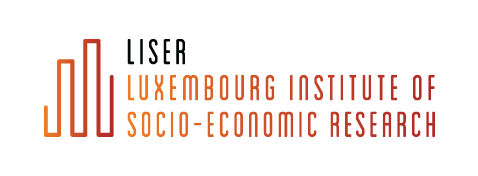Project Details
Description
Growing economic inequality and low social mobility raise important concerns about social cohesion; and require tracing individuals back to their social origins to address inequality of opportunity that can affect their potential to succeed in life. ORIGINS will expand and deepen our knowledge on the causes of inequality and its persistence by studying the influence of social origins on individual socioeconomic trajectories. Unpacking the origins of existing inequalities and the way in which they are passed on from parents to children is key for understanding their consequences for social cohesion in the long run.
ORIGINS focuses on three key stages of the family life cycle along which parental choices may exert a long run influence on the well-being of their offspring: (i) through parental marital choices, (ii) through offspring childbearing and childrearing and (iii) through offspring entry into the labour market. ORIGINS will provide the first evidence on the role of parental mating choices and the role of parental labour market networks for children’s life cycle earnings; and will offer a unifying framework for the relative impact of genetic endowments and environments provided by parents on several child outcomes such as education, earnings and wealth, offering new insights on an old question with the aim to reconcile previously inconclusive evidence.
ORIGINS has two distinctive features: (i) it deploys high quality register data from Denmark that enable linking parents to their children across their entire life on several socioeconomic outcomes such as education, income and wealth; and (ii) it develops an innovative econometric framework to apply these data based on a model of intrafamily labour earnings dynamics. Although Denmark is a welfare state with generous support of childcare and education, it is well documented that family background still matters for individual success. Detecting the mechanisms of intergenerational mobility in the context of Denmark, can therefore offer important insights for higher inequality and lower social mobility countries including Luxembourg, which is one of the countries with the lowest degree of social mobility across generations in Europe.
Gaining a firm understanding of the extent to which different aspects of social origins matter for the observed intergenerational persistence and socio-economic inequalities, can inform policy makers designing public policies to support disadvantaged children, and address low social mobility and existing inequalities.
ORIGINS focuses on three key stages of the family life cycle along which parental choices may exert a long run influence on the well-being of their offspring: (i) through parental marital choices, (ii) through offspring childbearing and childrearing and (iii) through offspring entry into the labour market. ORIGINS will provide the first evidence on the role of parental mating choices and the role of parental labour market networks for children’s life cycle earnings; and will offer a unifying framework for the relative impact of genetic endowments and environments provided by parents on several child outcomes such as education, earnings and wealth, offering new insights on an old question with the aim to reconcile previously inconclusive evidence.
ORIGINS has two distinctive features: (i) it deploys high quality register data from Denmark that enable linking parents to their children across their entire life on several socioeconomic outcomes such as education, income and wealth; and (ii) it develops an innovative econometric framework to apply these data based on a model of intrafamily labour earnings dynamics. Although Denmark is a welfare state with generous support of childcare and education, it is well documented that family background still matters for individual success. Detecting the mechanisms of intergenerational mobility in the context of Denmark, can therefore offer important insights for higher inequality and lower social mobility countries including Luxembourg, which is one of the countries with the lowest degree of social mobility across generations in Europe.
Gaining a firm understanding of the extent to which different aspects of social origins matter for the observed intergenerational persistence and socio-economic inequalities, can inform policy makers designing public policies to support disadvantaged children, and address low social mobility and existing inequalities.
Layman's description
High levels of income inequality and concerns about social mobility are among the topics high in the public debate. Any policies aiming to address existing inequalities, and to promote social mobility by providing equal opportunities to everyone in the society independently of their family background, need to be based on a firm understanding of the drivers that generate these inequalities and their persistence over time. The aim of this project is to study the influence of social origins on individual success addressing the following questions: How does mating someone with the same level of education affect children’s income? How do family financial resources, investments and inherited genetic endowments determine children’s economic well-being? How do parental labour market networks influence the employment choices and income trajectories of children? Providing clear answers to these questions is essential for identifying the sources of inequalities, and for helping the design of policies for promoting equal opportunities to all individuals to succeed in life.
| Acronym | ORIGINS |
|---|---|
| Status | Active |
| Effective start/end date | 1/03/22 → 28/02/25 |
Funding
- Luxembourg National Research Fund (FNR)

- Luxembourg Institute of Socio-Economic Research (LISER)

Keywords
- Social mobility
- Intergenerational mobility
- Inequality
- Marital sorting
- Parental networks
- Earnings dynamics
- Equality of opportunities